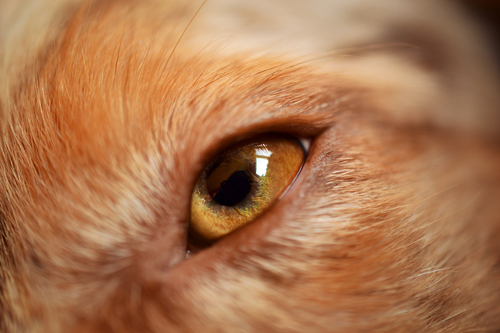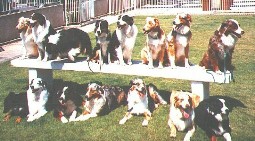 Below you will find information we have gathered about the Australian Shepherd breed. Read and click through the valuable knowledge bases as well as links and familiarize yourself with the details of the breed.
Below you will find information we have gathered about the Australian Shepherd breed. Read and click through the valuable knowledge bases as well as links and familiarize yourself with the details of the breed.
Personality and Character, Double Merle, MDR1 Gene, as well as Genetics and Health are top subjects and is/are important information to read about and understand before and after you adopt an Aussie.
There are a number of ways we can avoid issues that are related to the breed and the first step is to familiarize yourself with the causes.
To begin your journey, you can Start here:
• Australian Shepherd Information
Brushes that are handy for grooming Aussies
Genetics & Health
Who doesn’t want a healthy best friend…one who remains active long into old age? Sadly hereditary diseases are on the rise in all breeds. A growing number of dogs are dying before even reaching old age or reaching old age but with chronic health problems. Understanding the genetics and potential health issues affecting this wonderful breed is a good first step in halting this upward trend (ASCA).
For more Genetics and Health information:
• Basic Genetics -Inheritance of Color and Pattern
• Australian Shepherd Health and Genetics Institute -Aussie Pigmentation and Genetics
• Guardian Angels -Info on Canine Epilepsy and Hypothyroidism
• OFA -The Canine Health Information Center
MDR1
Aussies and many other herding breeds can be sensitive to certain drugs - Washington State University has developed a simple testing kit to screen for the mutant MDR 1 gene. For more information please go to their website: www.vetmed.wsu.edu/VCPL/
Want to know what Ivermectin can do to an Aussie that has the MDR1 gene? Click here to read Bristol's story of eating some sheep droppings from livestock that had just been wormed with oral Ivermectin. Watch you tube videos of her recovery here.
The Double Merle
A 'double merle' is exactly that - a puppy who's both parents have a merle coat pattern (not just Aussies, doesn't matter whether blue or red) - when 2 merles are bred together they have a 1 in 4 chance (25%) of producing a double merle pup (or homozygous merle), and these pups have a high probability of having hearing and/or vision impairment. These pups usually have what is called 'excessive white coloration', meaning they have much more white than the breed standard allows, particularly around their eyes and/or their ears. Their impairment can range from slight to severe, meaning only one ear has some hearing loss to minimal hearing in both ears, from some vision loss in one eye to neither eye is fully formed and totally blind.
For more information about this, please visit these links:
• Lethal Whites
• White Fright by C.A. Sharp
For information and help in living with a vision or hearing impaired dog:
• DEAF DOG EDUCATION ACTION FUND -Excellent website helping deaf dogs, please check it out if you are living with or thinking of living with, a deaf dog!
• AMAZING AUSSIES
-Amazing Aussies is dedicated to rescuing Lethal White Australian Shepherds and matching them with new forever families while raising awareness to eradicate Merle-to-Merle breeding through educational programs
• DEAF and/or BLIND PUP EDUCATION 101 - by Christy Mullady
• Tips & Suggestions To Help Your Blind Dog
• Thank you for rescuing me! Now what?
Additional links about double merles:
Australian Shepherd Personality and Character
(This article was written by Kathleen Cole and is reprinted with the author's permission)
 The Australian Shepherd was developed to be a moderately sized, intelligent, all-purpose stock dog of great character and endurance. Many Aussies today still do the work they were bred for, and even those that have never seen sheep or cattle usually have a strong herding instinct. This means that Aussies need fenced yards and leashes, as the temptation to herd dogs, children, and traffic can simply overwhelm them.
The Australian Shepherd was developed to be a moderately sized, intelligent, all-purpose stock dog of great character and endurance. Many Aussies today still do the work they were bred for, and even those that have never seen sheep or cattle usually have a strong herding instinct. This means that Aussies need fenced yards and leashes, as the temptation to herd dogs, children, and traffic can simply overwhelm them.
Being bred to work hard all day means that most Aussies are not content to be couch potatoes, although Aussies have individual characters and some are more sedate and quiet- natured than others. For the most part, however, these are high-energy dogs who need a purpose in their lives, a job as it were. Owners must be committed to give their dogs the time and attention they require through play and training, for as with any dog undirected energy can turn towards destructive behaviors such as digging and chewing. Running, jumping, and rough-housing are all a part of being a normal Aussie.
The great intelligence of these dogs, necessary to out-think and control livestock, can be detrimental when left untrained and unused. Aussies are quite capable of out-thinking their owners. Obedience training is highly recommended as a means of teaching owners how to channel the typical Aussie's innate desire to please into appropriate behaviors. Aussies learn very quickly, so be certain you are willing to keep your Aussie occupied with walks, play, and training to benefit both mind and body.
Although many Aussies are friendly with everyone, the Australian Shepherd as a breed tends to be somewhat reserved and cautious around strangers. With Aussies of this nature owners should encourage the dog to meet people but not force encounters. Aussies are often quite protective of their family and property, a desirable trait in some situations but not acceptable in others, and some dogs never accept strangers. As with all dogs, poorly socialized Aussies may become aggressive without proper training.
Aussies are generally healthy dogs, and can be expected to live up to twelve years or more, so ownership can be a lengthy commitment. Although minimal, there is some grooming required to keep the coat clean and conditioned, such as regular brushing and nail trimming. To maintain their high energy levels, typical active Aussies may eat more than other, more sedate dogs of similar size, so be prepared to feed plenty of high quality food.
However, Aussies are perfect for people wishing to own a highly trainable, versatile, super-smart dog that can work/play "till the cows come home". If you have the time and commitment for an Aussie you won't be disappointed. These special dogs deserve special owners. Their loyalty, drive, character and whimsical sense of humor place them in a class by themselves!
